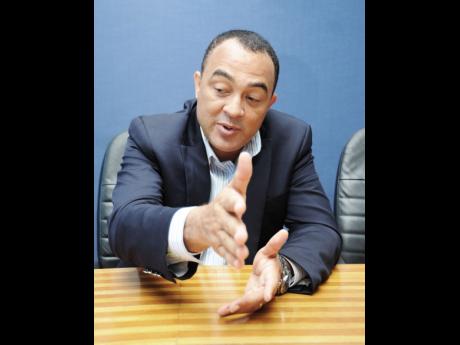Weed push! - Health ministry hopeful as WHO considers medicinal properties of ganja
Jamaica's Ministry of Health and officials of other countries have convinced the General Assembly and the Executive Board of the World Health Organisation (WHO) to conduct a review to recognise the medicinal properties of ganja.
The 40th Expert Committee on Drug Dependence of the WHO will take place in Geneva in May and will be specifically dedicated to the pre-review of ganja and its major component substances. The pre-review of cannabis extracts or tinctures will also take place at that time.
"Jamaica welcomes the WHO's planned review of the United Nation's classification and governance of cannabis, whose medical value must be determined by science and evidence-based analysis," Minister of Health Dr Christopher Tufton told The Sunday Gleaner.
Tufton noted that at the WHO General Assembly in Switzerland in 2017 he presented a case for the medicinal value of extracts of ganja to be recognised by the WHO.
This would require the rescheduling/removal of ganja from its current grouping with other narcotics products having no medicinal value to a new group based on the addictive properties of some of its components.
"As the country responsible for the development of one of the first medicinal cannabis products, Canasol for the treatment of glaucoma, Jamaica has already signalled to the WHO our readiness to participate in further research which will better inform the global approach to cannabis.
"We are also focusing research into the adverse effects of cannabis, which includes our partnership with PAN American Health Organisation (PAHO) in a study investigating the link between cannabis use and road traffic accidents," added Tufton.
He said the health ministry has recognised that Jamaica and the local public-health system can benefit from research and the subsequent development of useful medicinal ganja extracts like Canasol.
According to Tufton, this requires Jamaica to actively participate and play a leading role in medical marijuana research, which should involve the study of adverse effects of marijuana, including, but not limited to, the likelihood of addiction, as well as the identification of measures to address these effects.
"The ministry does not support the recreational use of cannabis or any form of smoked cannabis products, even for medicinal uses, as smoking anything is hazardous to your health," noted Tufton.
"The ministry supports the use of tinctures, vaping, sublingual drops for medicinal purposes," said Tufton, as he underscored that the health ministry also does not support the use of 'edibles', such as ganja brownies in any form as a method of ingesting medicinal cannabis.
"The ministry recognises potential negative consequences of raw cannabis use, including issues associated with drugged driving.
"We urge the WHO to provide clear leadership on the public-health approach to the development of new policies on cannabis now being advanced in many countries, as well as updates to member states on the work being done ... as it relates to the scheduling of cannabis," said Tufton.



